LaTeX templates — Journal articles
Discover a wide range of academic journal LaTeX templates for articles and papers which automatically format your manuscripts in the style required for submission to that journal.
Recent
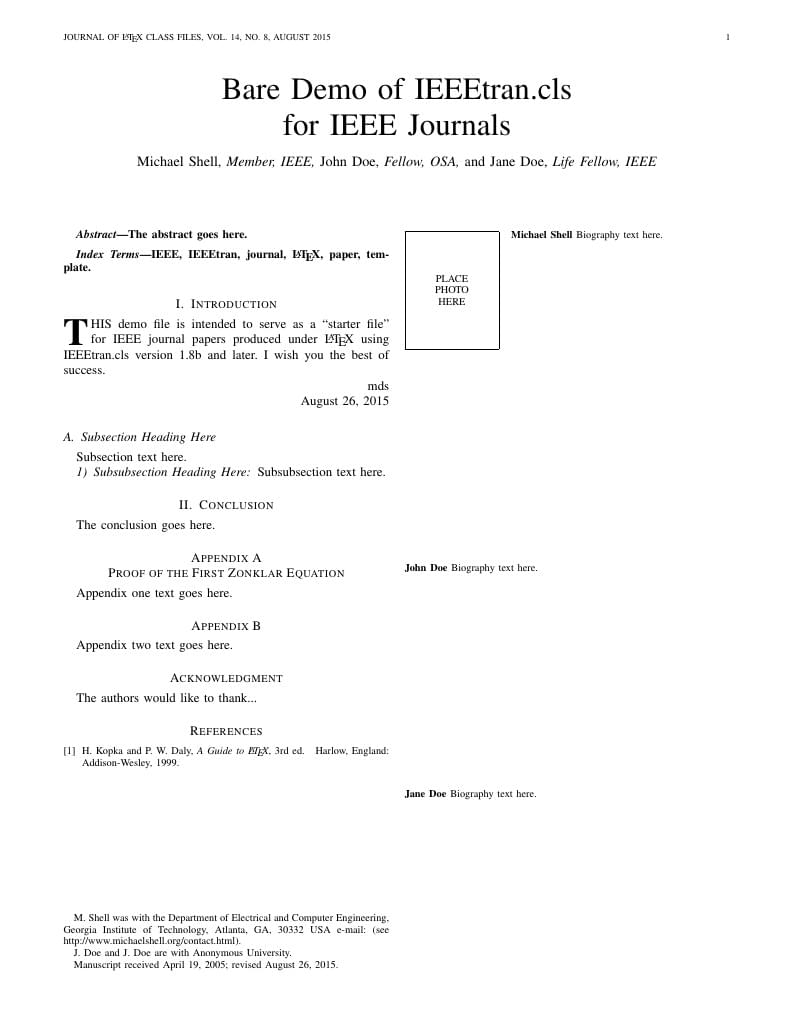
This is a skeleton file demonstrating the use of the IEEEtran.cls style with an IEEE journal paper, and with example bibliography files included. These bibliography files are includes to provide one example of how to set up a bibliography for your IEEE paper. For more information on using bibtex for references in your IEEE journal papers, see this FAQ. IEEEtran.cls version: 1.8b
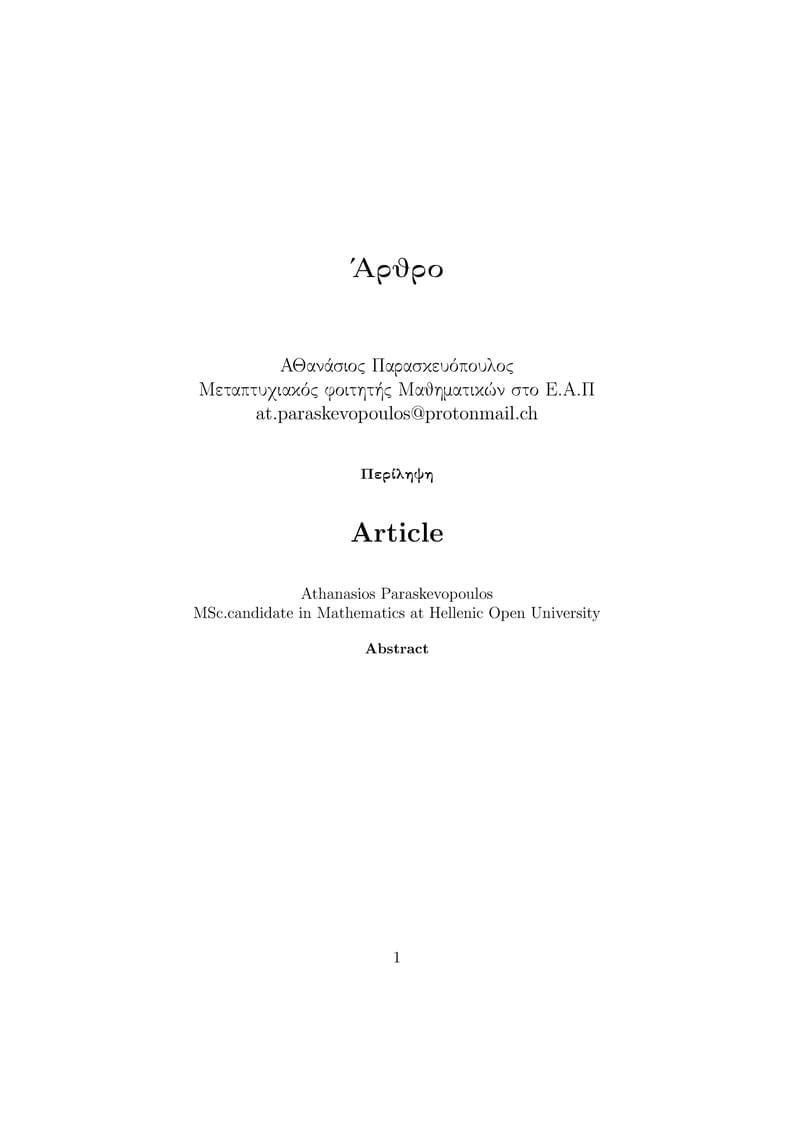
This is a template for the class to be used when publishing in a review from the Hellenic Mathematical Society
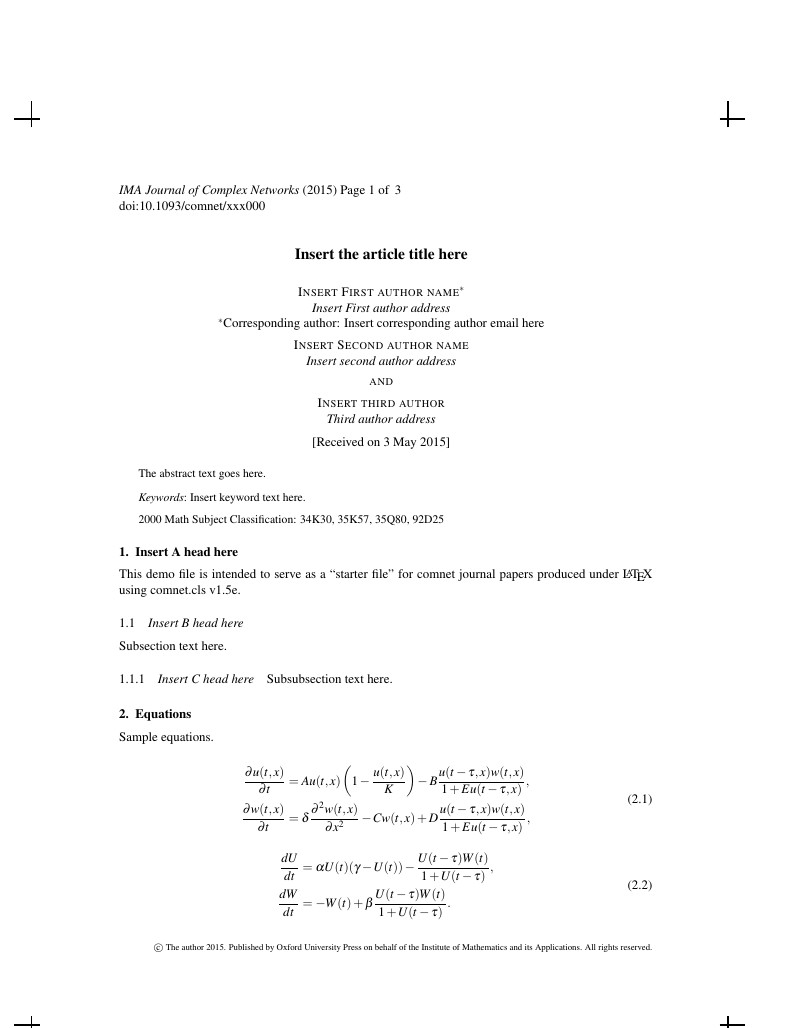
The Journal of Complex Networks, by Oxford University Press, publishes original articles and reviews with a significant contribution to the analysis and understanding of complex networks and its applications in diverse fields. Complex networks are loosely defined as networks with nontrivial topology and dynamics, which appear as the skeletons of complex systems in the real-world. The journal covers everything from the basic mathematical, physical and computational principles needed for studying complex networks to their applications leading to predictive models in molecular, biological, ecological, informational, engineering, social, technological and other systems. For more details about the journal see http://comnet.oxfordjournals.org/.
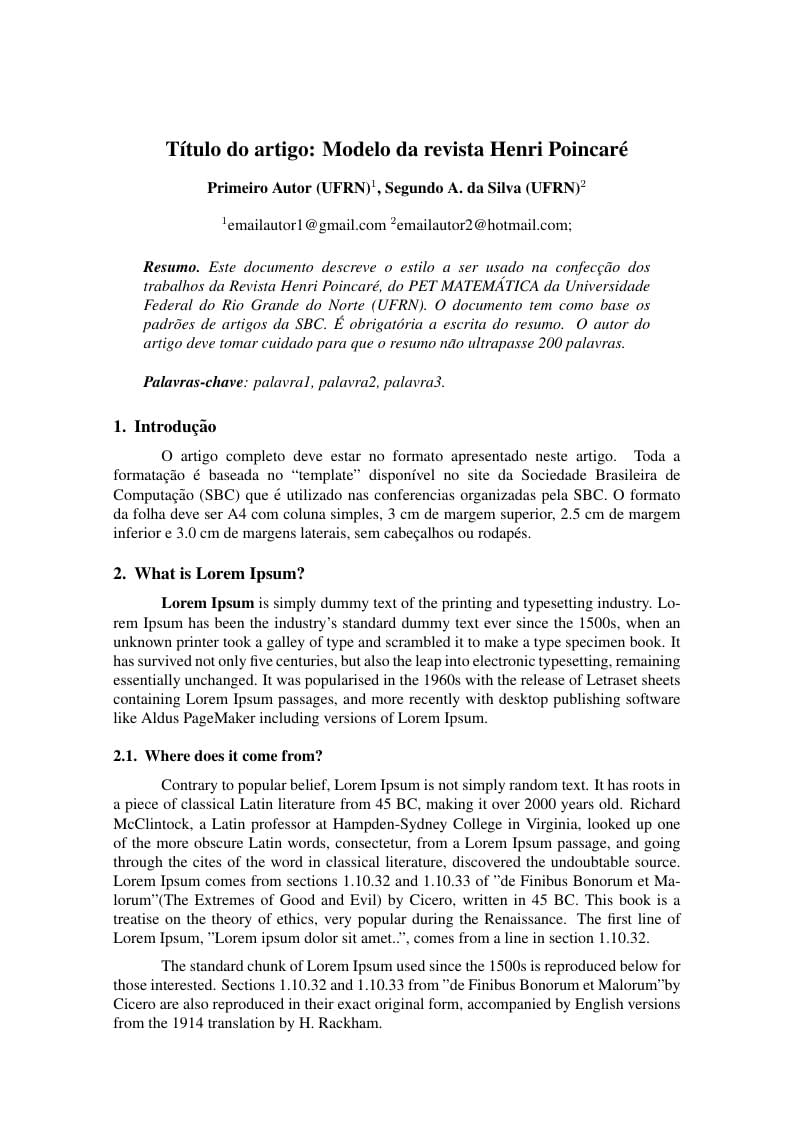
Modelo para periódico organizado pelo PET MATEMÁTICA da Universidade Federal do Rio Grande do Norte
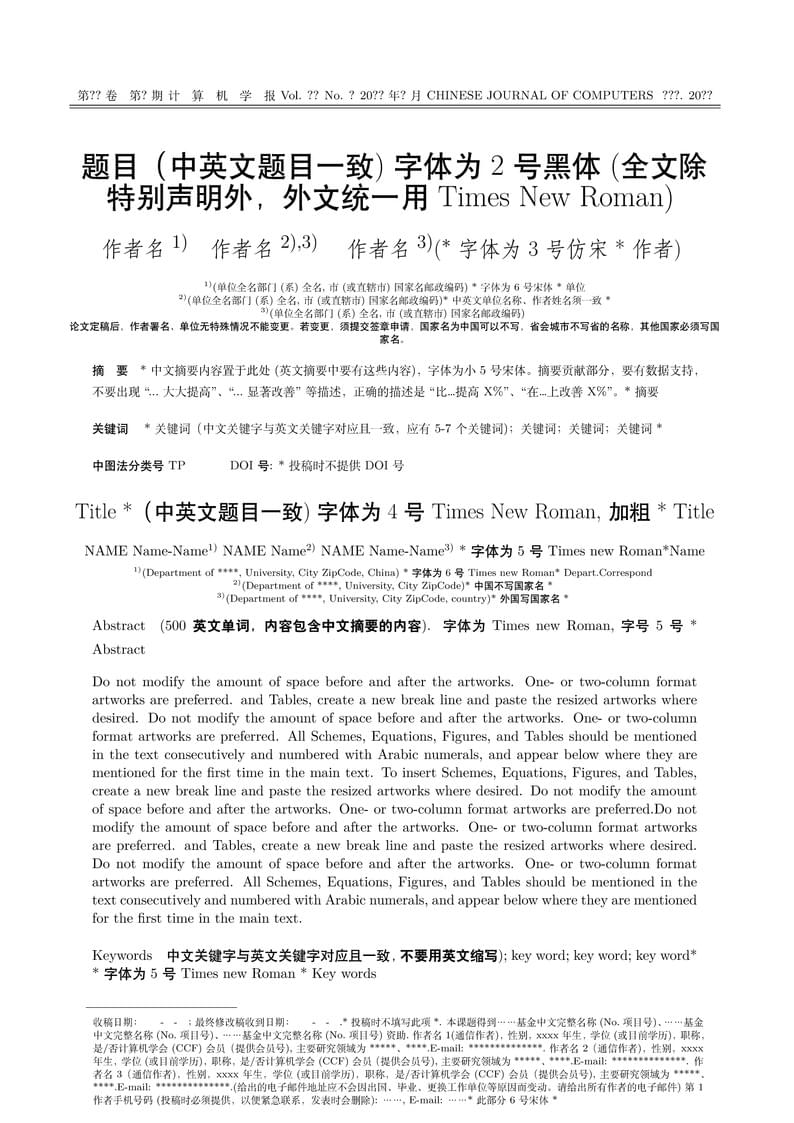
Chinese Journal of Computer Template
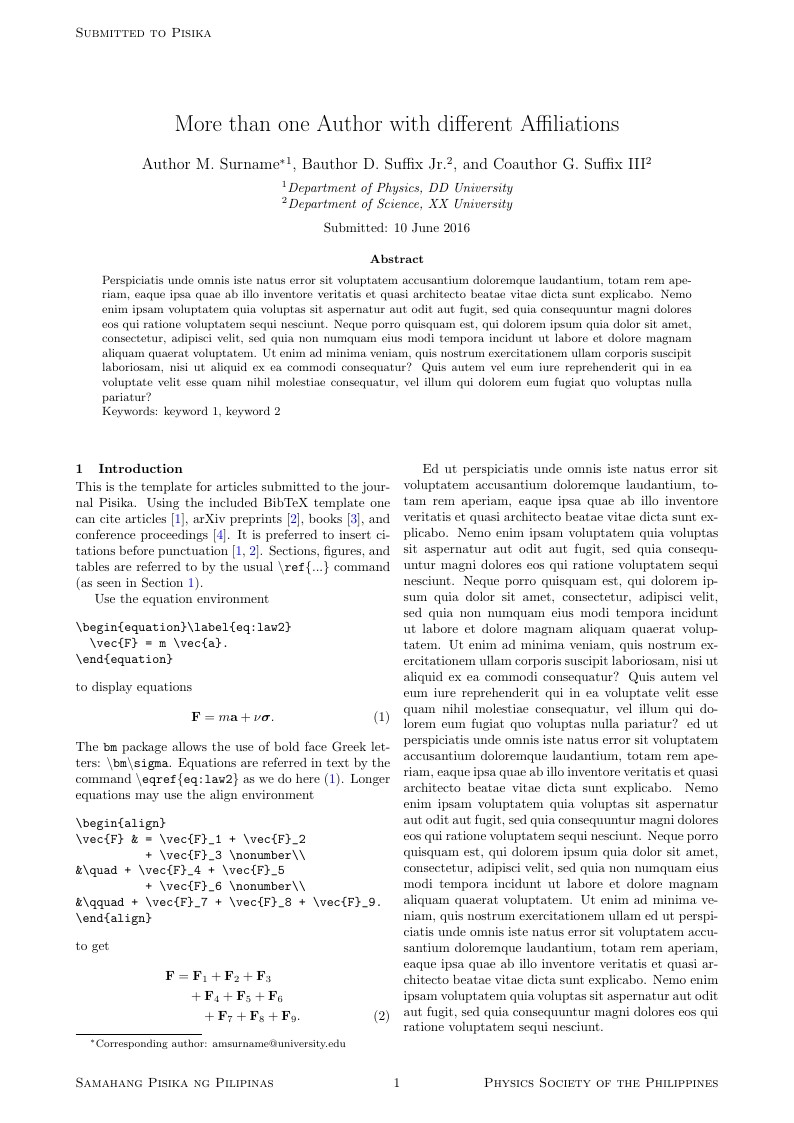
This is the TeX template for articles submitted to Pisika. Notes: The authblk package is contained in the preprint bundle. Other packages needed are: amsmath, bm, booktabs, caption, dcolumn, fancyhdr, geometry, graphicx, hyperref, latexsym, natbib The pisikabst.bst file is modified from the LPPL distributed apsrev.bst by PW Daly.
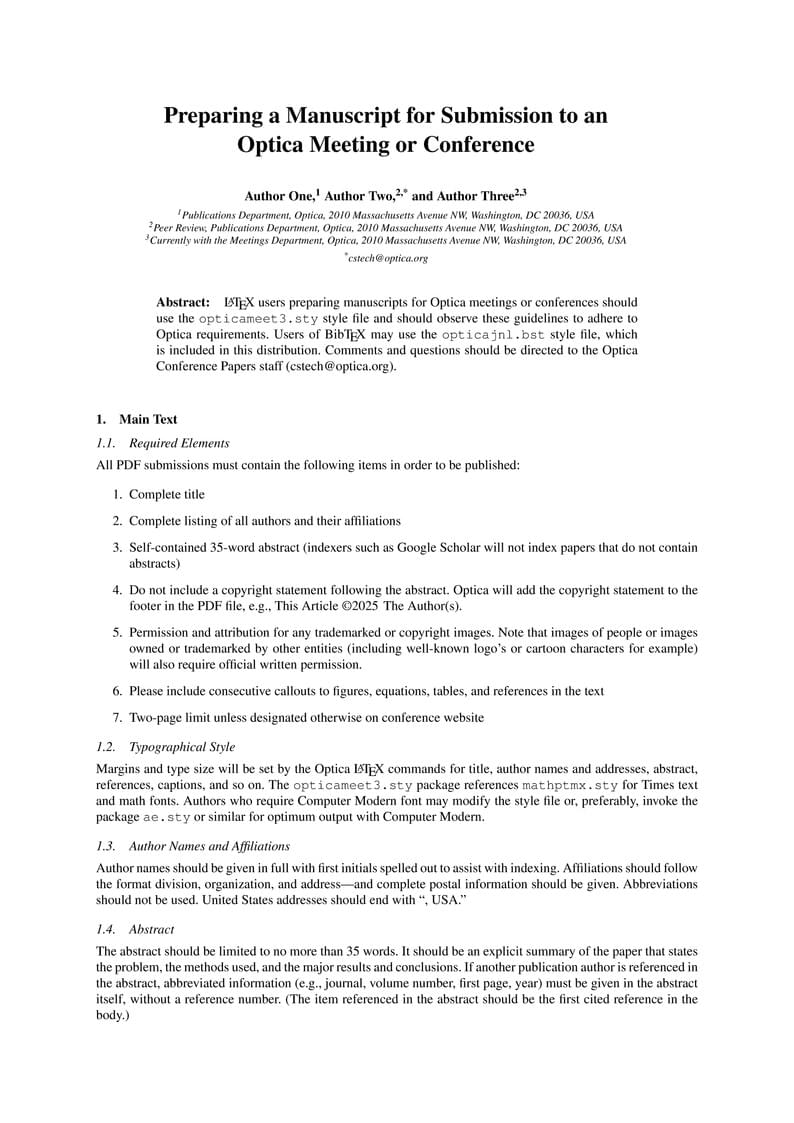
LaTeX users preparing manuscripts for Optica meetings or conferences should use this template. Comments and questions should be directed to the Optica Conference Papers staff.
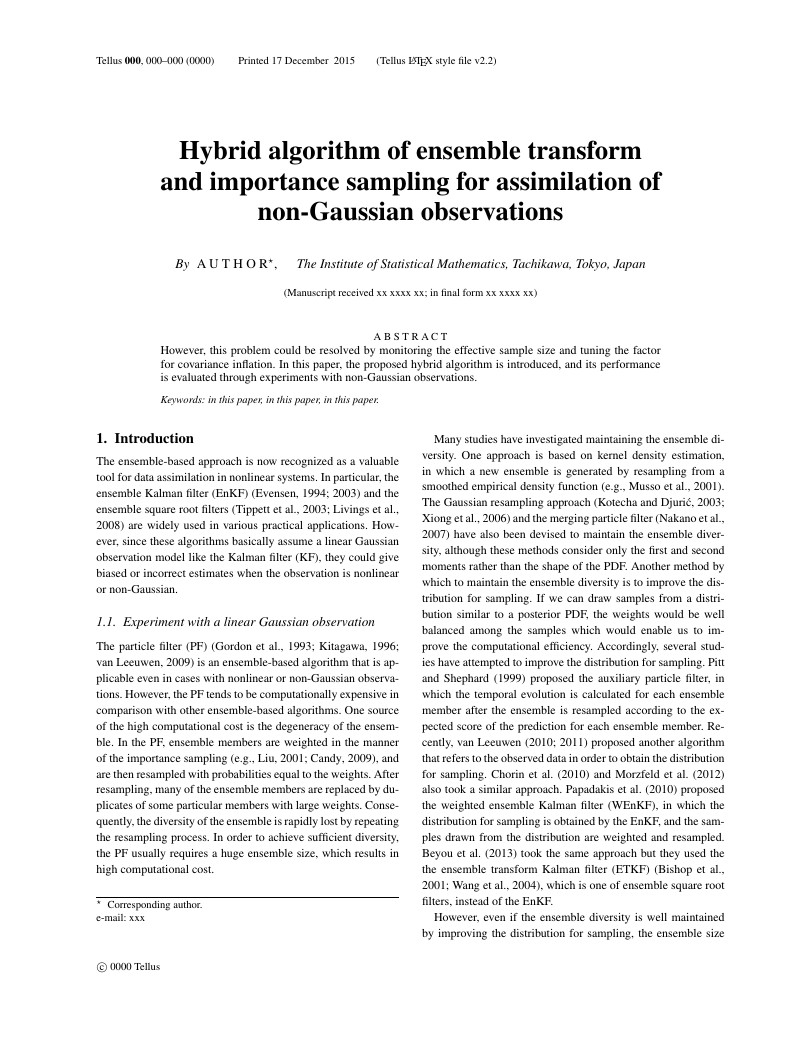
Tellus B: Chemical and Physical Meteorology is a highly respected peer reviewed Open Access journal publishing papers on all aspects of atmospheric chemical cycling related to Earth science processes. For more information about submission to the journal, please see the journal website.
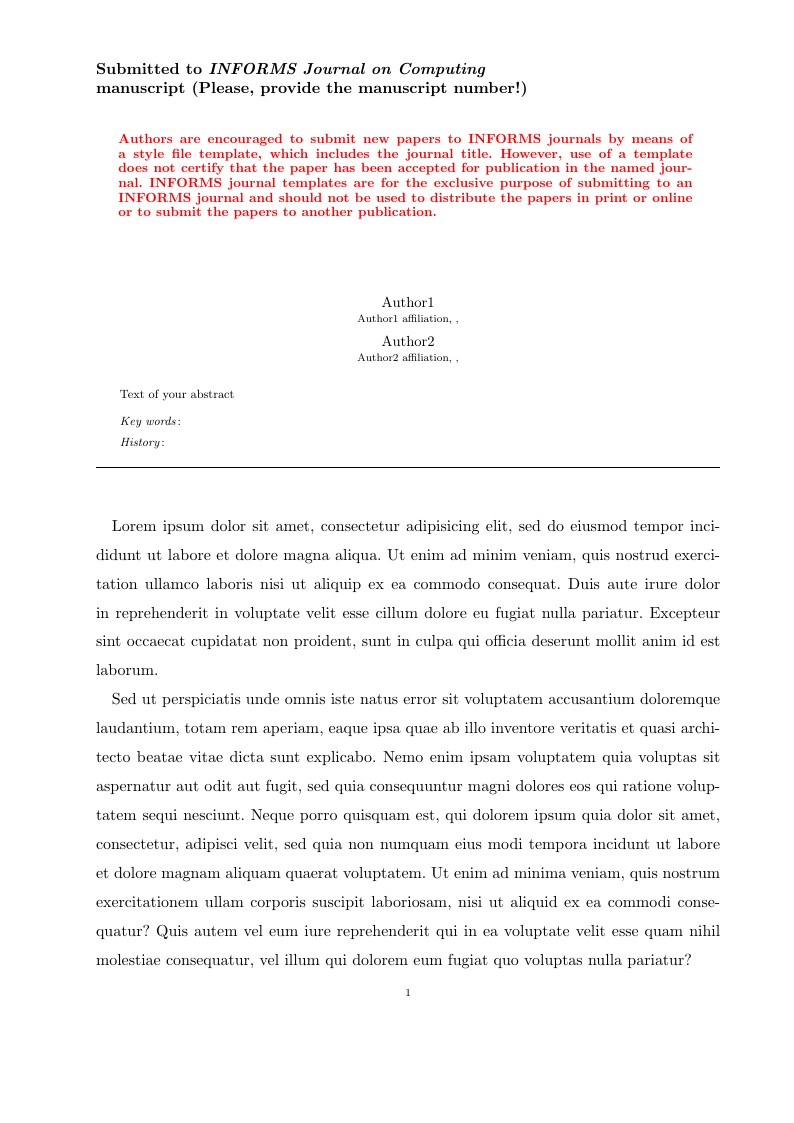
Author template for INFORMS Journal on Computing (ijoc) Mirko Janc, Ph.D., INFORMS, mirko.janc@informs.org ver. 0.95, December 2010
\begin
Discover why over 25 million people worldwide trust Overleaf with their work.